What Businesses Can Learn from Hillary Clinton's Email Issues
by Stephanie Faris on Monday, August 17 6:00
The emailing habits of Presidential hopeful Hillary Clinton have undergone intense scrutiny in recent years. Now that the Justice Department has taken her email server, however, professionals across the country are taking notice. Since many workers today use their personal devices and home networks to conduct business, they re likely wondering if they should be concerned about their own after-hours work behavior.
As Clinton continues to come under fire for sending confidential government emails through a home account, businesses could benefit from paying close attention. Here are a few lessons businesses can learn from the incident that has been nicknamed emailgate.
Have Nothing to Hide
Of course, the best thing you can do to protect yourself is be 100 percent honest and forthright at all times. In Clinton s case, nothing incriminating has been found, as far as the public knows, and it s possible nothing ever will be found. Whether you own a business or you re working for someone else, it s important to perform your duties each day as though your equipment can be audited at any time. This includes your personal smartphones and laptops. When you have nothing to hide, you have no reason to worry about your devices being confiscated.
Put Policies in Place
One of the biggest risks to corporate security is a business s own employees. Through irresponsible behavior, employees can regularly compromise a company s security, potentially resulting in a devastating security breach. When this bad behavior happens internally, server administrators can put protections in place to offset any damage. However, once the employee leaves that secure environment, the business loses control. Put policies in place that prohibit employees from sending emails and storing documents on personal devices and you may be able to offset some of those risks.
Issue Work Devices with VPNs
As tempting as it can be to save money by allowing employees to use their personal devices, the safest measure you can take is to issue the device yourself. Install a VPN and encryption on every device to keep it safe when it s on a home or public Wi-Fi. You can also set up remote wipe capabilities on all mobile devices to be able to protect information if they should be lost or stolen.
Preserve All Emails
In Clinton s case, email preservation efforts fell under the Federal Records Act. Even private companies can be held accountable for saving emails, however. If your business ever finds itself involved in legal action, your electronic records may be seized as part of electronic discovery. Having those emails on personal devices and home computers can make things complicated, especially if the employee can t produce them. It s important to set up all emails to back up to a server and saved, especially if your business is one that is at high risk for a lawsuit.
As the line between work and personal devices continues to blur, it s important that businesses have measures in place to protect themselves. By understanding the risks and taking preventive steps, your business can avoid getting in trouble with auditors or the legal system.
